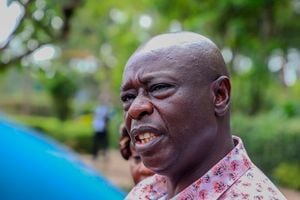Teachers should uphold integrity of national exams

What you need to know:
- So, for the teachers who taught these learners, if the results come out well, it would mean they have understood the demands of this NLSC, and guided the learners well
The 2024 Uganda Certificate of Education (UCE) exams started on Friday, October 11, with briefing of candidates. These S.4 candidates have completed their level two education cycle of four years and finish it with a national assessment.
After teaching and learning has taken place, there has to be some sort of measurement and evaluation. Genesis 1:1 says: “God created the world and saw each day that it was good before proceeding to the next day.
This is manifestation of measurement and evaluation. In education context, measurement is the quantitative assessment of performance of the students in a given test/exam, while evaluation is a process that assigns ‘value’ to a measure e.g IQ=70. Thus, this UCE exams are end of cycle (summative) evaluation/assessment.
Being the first cohort of candidates to sit for UCE under the new lower secondary curriculum (NLSC), there is a lot of anxiety and uncertainty across the board, from parents, teachers, and learners themselves. It has been said that the exams questions shall be scenario based, but the exact format, structure and nature of the exam is unknown. Sample exam papers were given by Uneb, but didn’t cover all subjects, or schools.
Therefore, for these 2024 UCE candidates, there are no past papers to learn from. For teachers, who are the implementors of the curriculum, there is a lot of anxiety because most are uncertain of the outcome from this exams. Introduced in 2020, and severely affected by the Covid-19 pandemic, the NLSC has up to now not been well understood by all stakeholders.
So, for the teachers who taught these learners, if the results come out well, it would mean they have understood the demands of this NLSC, and guided the learners well.
However, some headteachers or teachers are not taking chances, and may resort to academic cheating. As a result, even before the learners started writing their exams, there have been reports of several arrests of teachers and headteachers involved in exam malpractice.
It should be noted that the dynamics of academic cheating behaviour is complex and not easily explained with just one factor (Andrian Pramadi et al). Peer influence, parental pressure, financial gain (for schools) and academic climate are factors that interact to encourage academic cheating behaviour.
In my experience as a student and teacher, I have seen that most times, school directors (private schools) or headteachers (in both government and private schools) spearhead cheating in schools, because excellent academic results enables them to get high student enrolment, improve their reputation, and also charge abnormally high school fees. In this case, the end goal is financial benefit.
In the old curriculum, there have been several ways in which cheating has been conducted. In some schools, chief examiners and invigilators are given or promised large sums of money, or bursaries for their children for them to permit cheating.
In this case, the teachers (invigilators) sent to uphold the integrity of the exams become collaborators and promoters of academic cheating and dishonesty.
I have also heard of a situation where school gate is locked for the duration of the exam paper, in order to prevent Uneb scouts from accessing the exam centre.
Furthermore, it was not uncommon for teachers to leak the contents of confidential (for science practical papers) to students, or for ICT teachers to share support files for practical papers with students or parents. Those who have gone through our primary and secondary education system in the early 2000s know these things.
But all in all, we should never allow the malpractices that poisoned the old curriculum to infect this NLSC.
As you have seen above, teachers play a central role in upholding the integrity of our national exams. If all teachers religiously followed their code of conduct and related education sector laws, all students would have a fair chance in national exams.
The good thing this time round, the questions are going to be scenario-based, and therefore the responses will have to be unique to the experiences of the learner.
As Uneb has rightly stated in the UCE timetable, the purpose of the examination is to assess the candidates’ level of achievement. It is not an end in itself (do or die), but it helps to place candidates in their suitable career paths.
Emmanuel Angoda Founder of TESI, teacher at Lira Town College [email protected]




